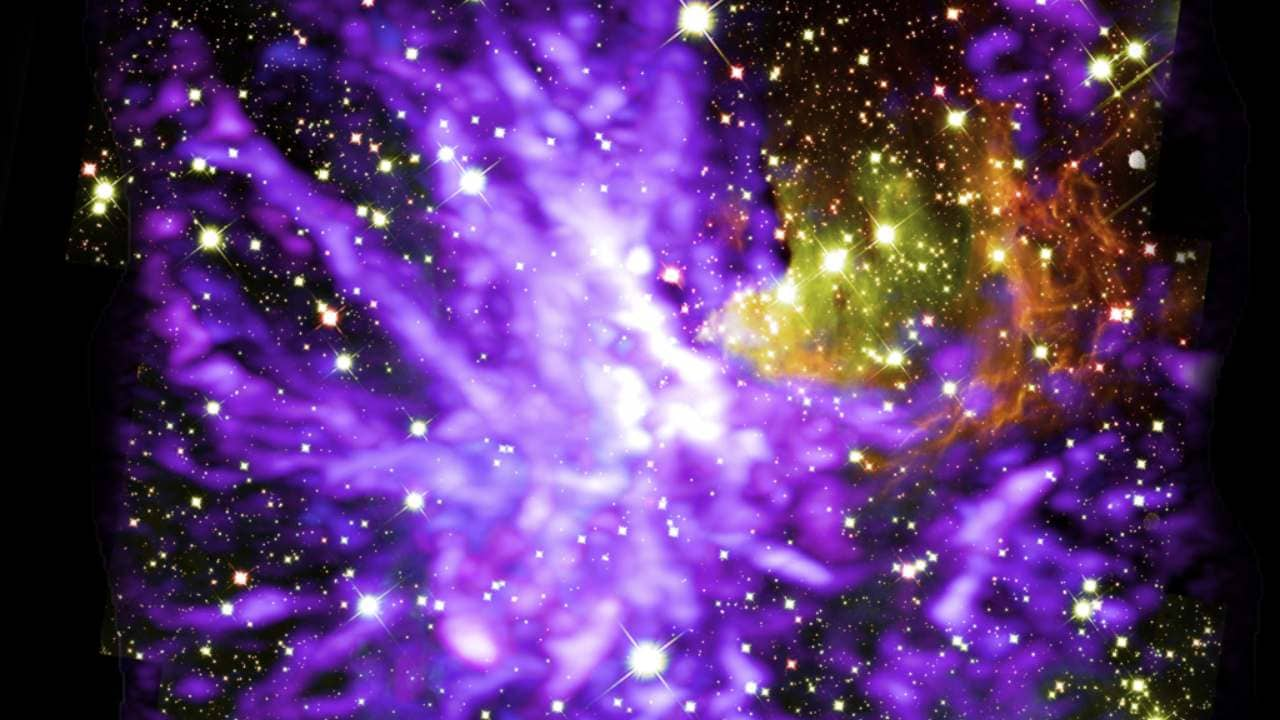
FP TrendsJuly 04, 2020 15:21:46 IST
Astronomers have observed celestial fireworks in a star cluster called G286.21 + 0.17.
The Atacama Large Millimeter / submillimeter Array (ALMA) radio telescope in Chile teamed up with the Hubble Space Telescope to create a mosaic of the star cluster, which appeared as ‘cosmic fireworks’ highlighting purple streamers and sizzling stars, according to a public release from image
Most of the stars in the universe, including the Sun, were born in large star clusters, according to a Daily science report. While clusters are the building blocks of galaxies, their formation still remains shrouded in mystery.

Image of the star cluster G286.21 + 0.17, captured in the act of formation.[[[[Click on the image to see an animated gif of star formation]Image credit: ALMA / Y Cheng, etc. al / Hubble / NRAO / AUI / NSF
According to the results, published in The Astrophysical Journal, the mosaic was made with over 750 individual radio observations recorded by ALMA and 9 infrared images from the NASA / ESA Hubble Space Telescope.
The cluster itself is located in the Carina region of our galaxy, about 8000 light years away.
A statement issued by the National Radio Astronomy Observatory explained that ALMA was able to capture “dense clouds made of molecular gas” (the purple ‘fireworks streamers’), while the stars in the image are visible in infrared light, as seen by the Hubble telescope.
“This image shows stars in various stages of formation within this unique group,” Yu Cheng, lead author of the study, from the University of Virginia at Charlottesville, said in the statement.
Cheng added that the process can take at least a million years to complete.
Co-author Jonathan Tan, from Chalmers University in Sweden and the University of Virginia, said the image highlights just how dynamic and chaotic the process of star birth really is.
“We see competing forces at work: gravity and cloud turbulence on one side, and stellar winds and radiation pressure from young stars on the other,” Tan said.
Find the latest and future technology devices online at Tech2 Gadgets. Get tech news, gadget reviews, and ratings. Popular gadgets including specs, features, pricing, laptop, tablet and mobile device comparison.
.